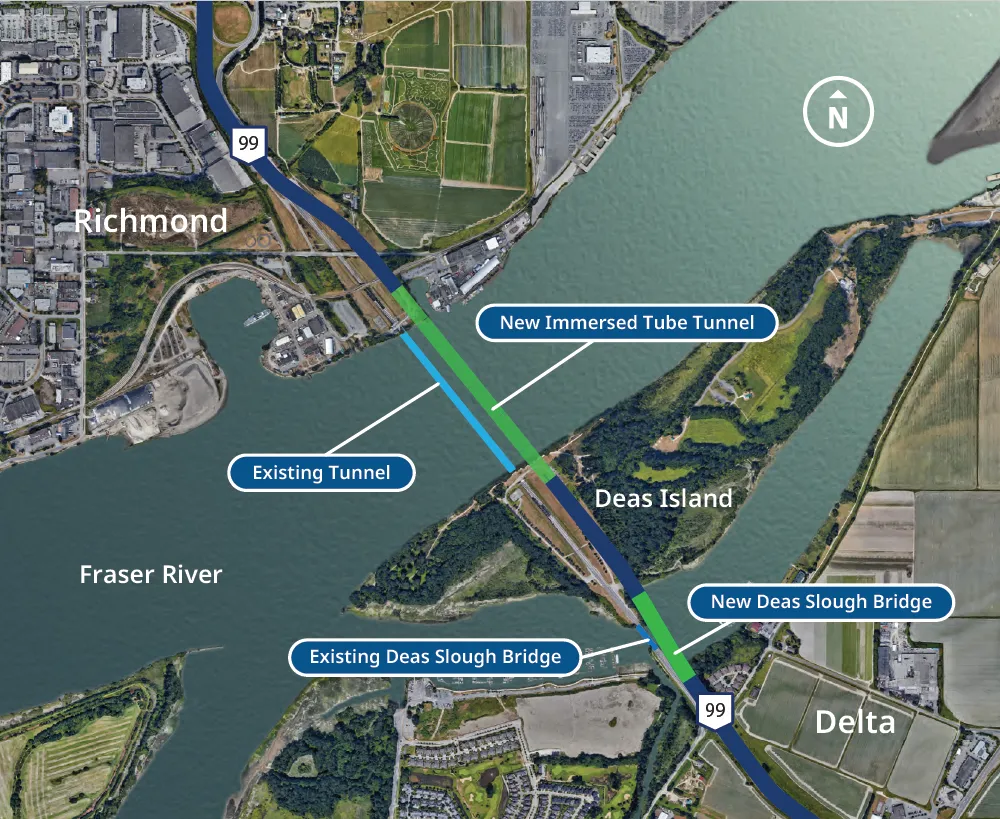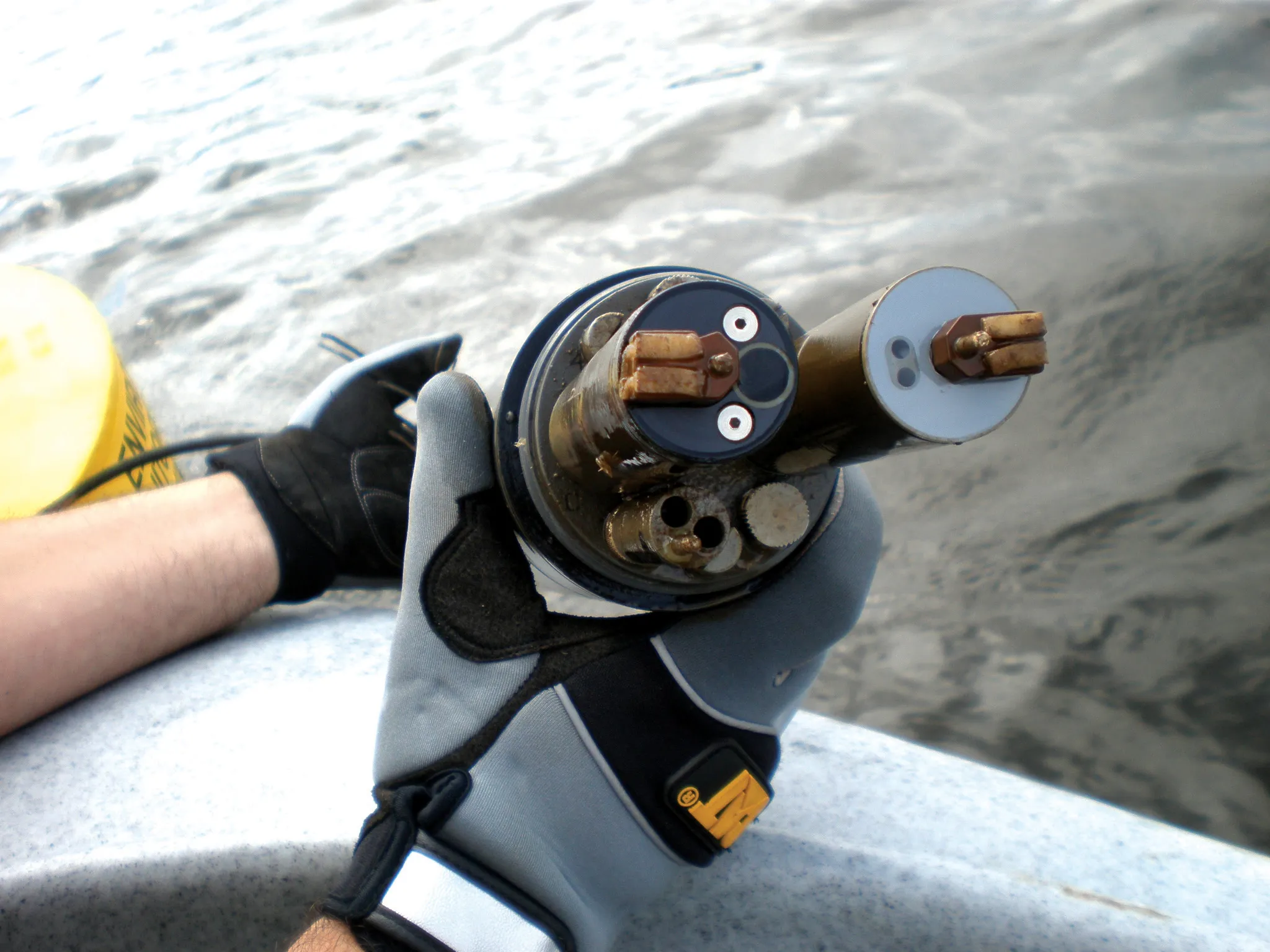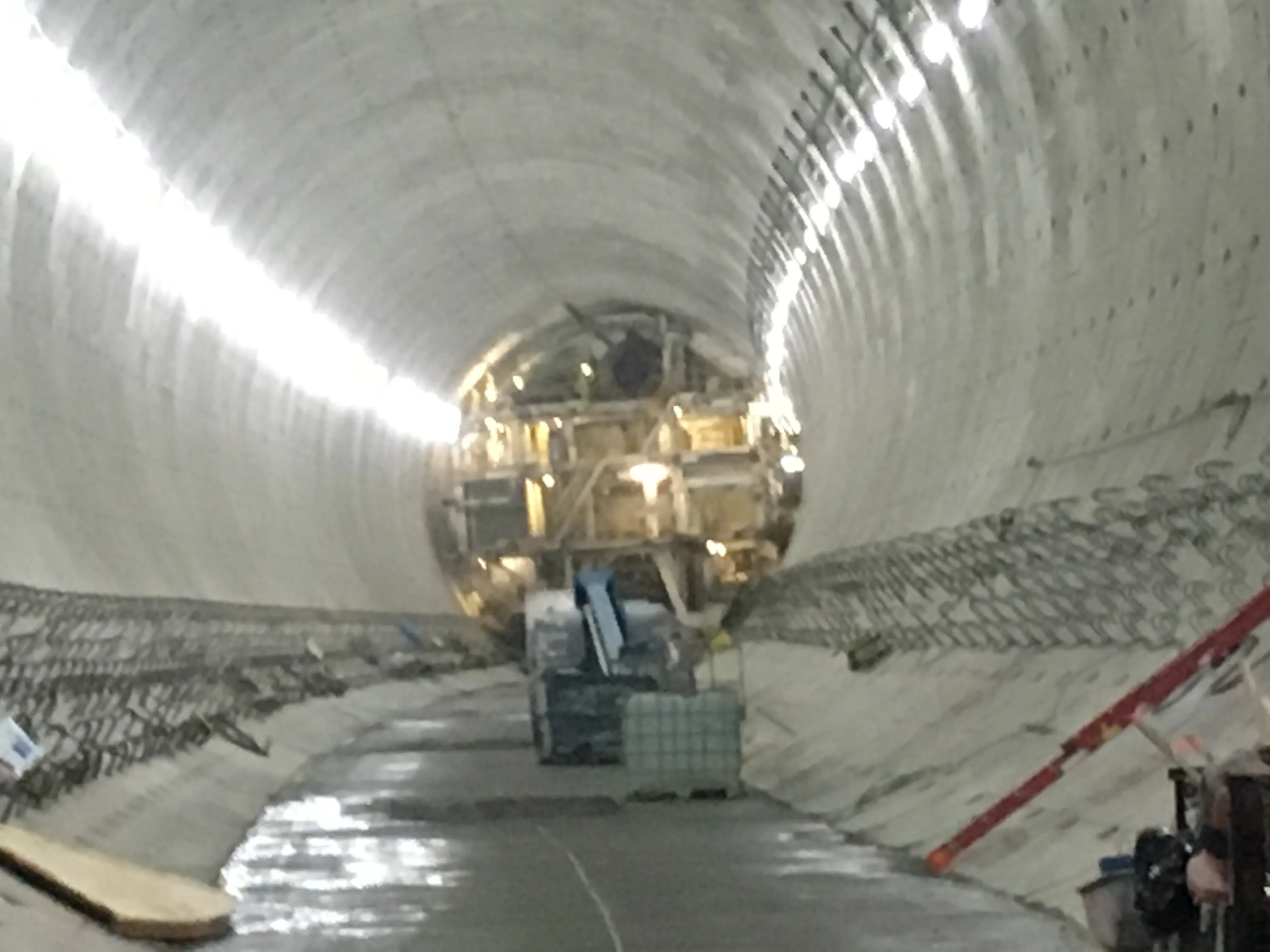
Cross Fraser Partnership has been awarded the Design Early Works Agreement (DEWA) for the Fraser River Tunnel Project by the Canadian province of British Columbia.
This agreement signals the start of the development phase, which allows for a transparent and collaborative approach to tunnel design, project schedule, costs and risks associated with the project close to the city of Vancouver.
The new tunnel will be built parallel to and just upstream from the existing 629m-long four-lane Massey Tunnel that was opened in 1959. It was the first project in North America to use immersed tube technology and remains Canada’s only tunnel below sea level and now carries more than its design limit of 80,000 vehicles a day. Extensive renovations to the tunnel and attempts to improve access roads have been done over the years, but the structure has only about 10 years of useful life, according to some reports.
Cross Fraser Partnership is an equal-parts consortium of major Canadian and international construction and engineering firms with a track record in delivering complex infrastructure projects.
The partnership consists of Pomerleau BC, Bouygues Construction Canada and Fomento de Construcciones y Contratas Canada (FCC) and supported by design and engineering consultant Arcadis.
The proposed eight-lane immersed tube tunnel will incorporate advanced engineering solutions and sustainable construction practices, reflecting what the consortium says is its commitment to innovation and environmental stewardship.
The Fraser River Tunnel Project is a key component of the broader Highway 99 Tunnel Programme and the province's broader transportation strategy. The project will improve travel times and reliability, increase connections across the South Arm of the Fraser River near the mouth of the river and support economic growth in the lower mainland region.
The new crossing will be an eight-lane immersed tube tunnel with three general-purpose lanes and a dedicated transit lane in each direction. It will also feature a separate multi-use path to support pedestrians, cyclists and other active transportation options.
The project includes replacing the existing Deas Slough Bridge and the Highway 99 upgrades between Westminster Highway in the city of Richmond and the Ladner Trunk Road in the city of Delta.
An earlier replacement proposal – a 3km-long 10-lane cable-stayed bridge costing US$2.8 billion - was underway in 2015. However, a provincial election in 2017 saw a change of government which promptly scrapped the project in favour of more research and consultation with the mayors of the greater Vancouver area cities and municipalities. In October 2019 the mayors recommended an eight-lane tunnel as the replacement.







